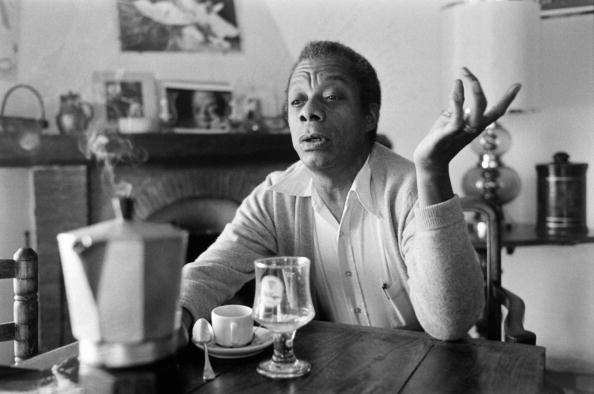
American novelist, writer, playwright, poet, essayist and civil rights activist James Baldwin poses at his home in Saint-Paul-de-Vence, southern France, on November 6, 1979.
Recently, I attended the Socrates Program by the prestigious Aspen Institute, where leaders from all walks of life attended to discuss American History and the teachings of James Baldwin. It was a privilege to have this session moderated by John Stauffer, a Harvard professor of English, American Studies, and African American Studies at Harvard University. He writes and lectures on the Civil Warh era, antislavery, social protest movements, and photography.
“ The questions which one asks oneself begin, at least, to illuminate the world, and become one’s key to the experience of others” – James Baldwin
During our discussions, we explored the importance of discussing American History, and we walked the path of James Baldwin, who strived to belong and found a way to acknowledge and express his longing for equity and belonging. Our intimate conversations, where we shared our stories about the importance of creating a just, equitable, and hopeful society, became more evident. Some of the takeaways I was able to grasp and translate for healthcare are as follows:
Intersectionality
The importance of looking at societal factors and intersectionality, more than just the structured law to give someone the right solution to create a just society, was intriguing and moving. As we are inclining towards an all-inclusive economy model and value-based care, the same concept applies to our healthcare leaders to view patients in a holistic manner considering their socio-economic, digital access, lifestyle stressors, and many more factors. That would help to give them personalized care and create a system that is inclusive, affordable and accessible. Going beyond our structured approach and making some mind shifts in our process would be vital for this change.
Diversity a program, inclusion is a mindset
As organizations are eagerly trying to implement diversity, equity and inclusion measures — and from our session, it seemed to be the new required buzzword — it was evident that diversity is a structured program. It brings in people from different walks of life to conduct work together, while inclusion is the experience one has when in the program and if the individual has been able to feel a sense of belonging. For a longitudinal healthcare system to sustain itself in its practice, the purpose of belonging need to be evoked, and the importance of experience and empathy must override the structured requirement. This would facilitate healthcare workers to meet patients where they are, especially for vulnerable communities, and give them a voice to better our system and society.
Health narratives
James Baldwin was an excellent writer, and he was able to express his struggles and resilience through writing to inspire others and, most importantly, allow us to walk in his shoes. His readings from “Notes of a Native Son” did precisely that. Creating health narratives focused on patients and using this data as a learning curve would better help us reframe our thought process and reimagine how we approach healthcare from a technology and service perspective. Derived from the Health Humanities Portrait Approach — which centers the patient’s own words using illness narratives, patients’ shared stories give providers better insights to create more equity and affordability in the system. A perfect expression from the Centers for Disease Control and Prevention stated that people from certain racial and ethnic minority groups were at a higher risk of Covid.
Creating Health narratives can tie in many stakeholders from a cross-industrial standpoint to further allow our health and wellness ecosystem to grow in an innovative and empathetic format.
In conclusion
Our history is clear evidence of our weakness and showcases our resilience and determined nature to create a society that is equal, valuable, and empathetic. These reflections serve as a great tool to create a better future for healthcare and the community.
Photo: RALPH GATTI/AFP via Getty Images







